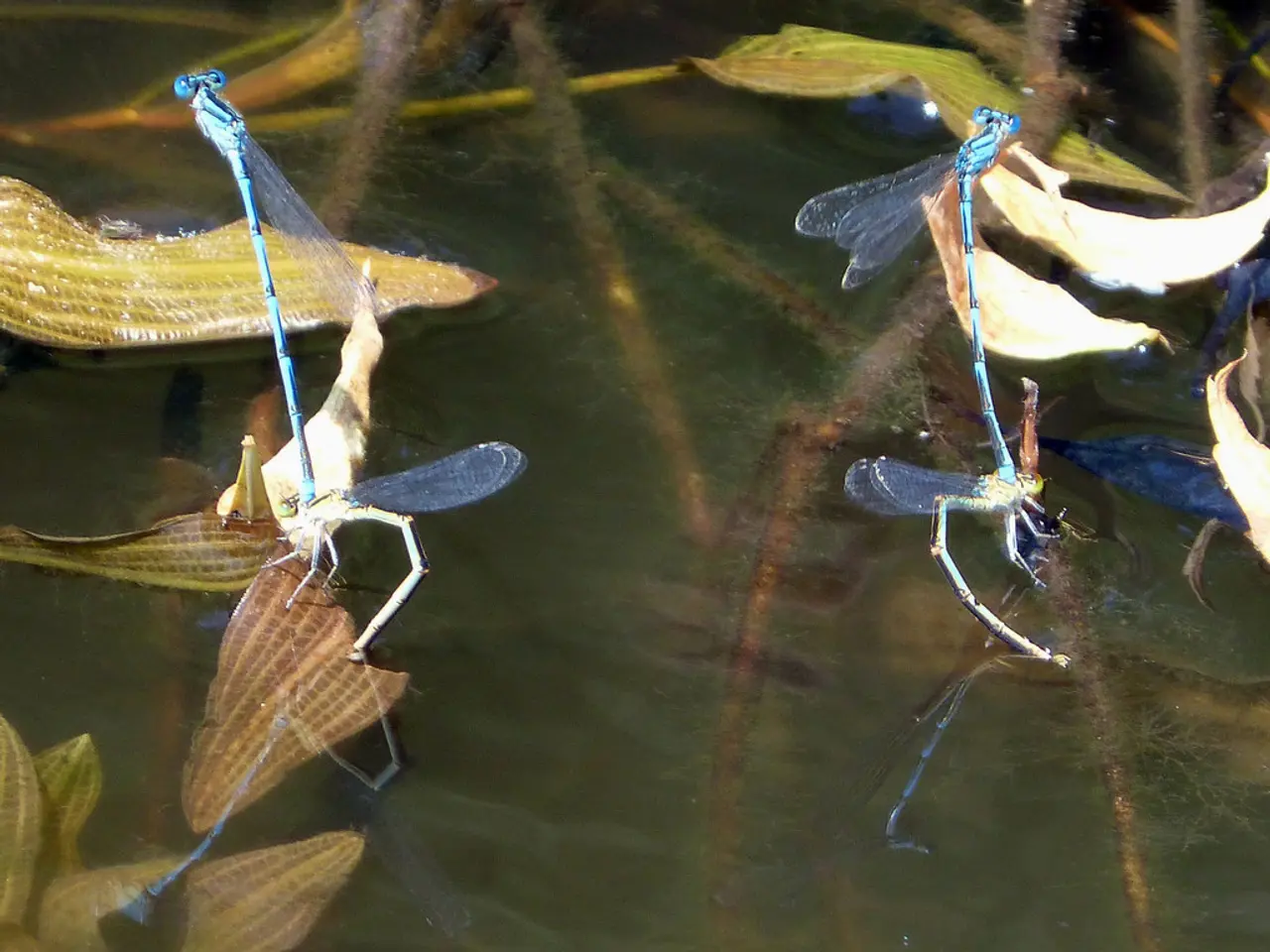Stricken Ducks or Geese
In a recent development, a series of measures have been put in place to address a botulism outbreak in a city pond, caused by the bacterium "Clostridium botulinum."
Seven dead mallards and two dead swans have been retrieved from the pond, and four more mallards are currently ill. To prevent the spread of this toxin, the city's employees are promptly removing dead animals, disposing of them through the city's carcass removal service. Sick animals are being cared for by volunteer animal rescue services.
The outbreak has been linked to the pond's nutrient-rich, oxygen-poor conditions, which have been exacerbated by high temperatures and an enrichment of water with additional nutrients, leading to an increase in free-floating algae. This, in turn, has resulted in less sunlight reaching the bottom of the water, hindering underwater plants' photosynthesis.
The decaying organic matter from the dead animals contributes to oxygen depletion, creating ideal conditions for the bacteria. To combat this, the focus is on removing dead animal remains and limiting nutrient enrichment.
Another crucial aspect of the control strategy is the promotion of aeration of pond water to increase oxygen levels. This can be achieved through mechanical aerators, fountains, or circulating pumps, which disrupt the oxygen-poor environment, hindering bacterial growth.
In addition, efforts are being made to control algal growth through measures such as shading, introducing pond plants that compete with algae, or careful use of algaecides. This is to prevent oxygen depletion during algal decay.
Monitoring water chemistry, especially pH and temperature, is also essential, as alkaline pH (~9), warm temperatures (25–40 °C), and low oxygen foster "Clostridium botulinum" proliferation.
Lastly, preventing human and animal access to contaminated water sources is crucial when botulism outbreaks are suspected, to avoid spread and further contamination.
In summary, an integrated control approach focusing on organic matter removal, nutrient management, aeration, and habitat modification is essential to prevent the spread of "Clostridium botulinum" toxin in city ponds. The city is currently preparing for long-term improvement in water quality by addressing siltation in the Volksgarden pond.
Science plays a vital role in understanding the cause and addressing the current botulism outbreak in the city pond. The link between the outbreak and health-and-wellness issues, such as climate change, is also noteworthy, as high temperatures and nutrient enrichment have contributed to the growth of free-floating algae and oxygen depletion in the pond. Furthermore, this incident emphasizes the importance of mental health, as the stress and potential danger of such incidents can affect the well-being of the community, calling for continuous environmental-science research to prevent future outbreaks.




